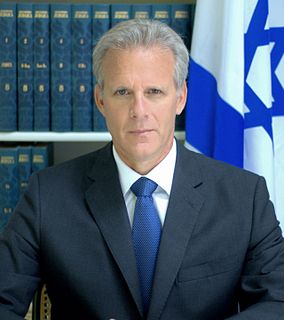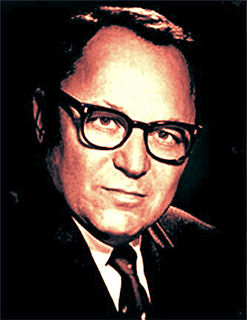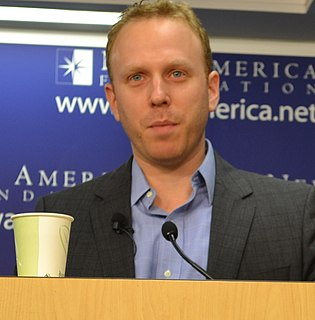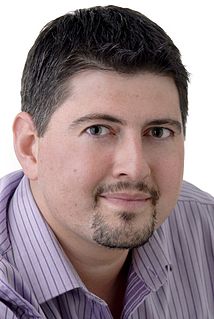A Quote by Klaus Kinkel
The American Jewish Committee has pioneered the German-Jewish-American dialogue.
Related Quotes
My experience as a Jewish American has often been as a spectator of one-sided conversations, or more like monologues, about Israel, Jewish History, Jewish identity, etc. Although there are profound divisions amongst Jews on all of these topics there are not many opportunities for deep and thoughtful dialogue about them.
You see the one thing I've always maintained is that I'm an American Indian. I'm not a Native American. I'm not politically correct. Everyone who's born in the Western Hemisphere is a Native American. We are all Native Americans. And if you notice, I put American before my ethnicity. I'm not a hyphenated African-American or Irish-American or Jewish-American or Mexican-American.
Jewish communities in the diaspora are very important to Israel and we are open to a dialogue with them. It is bitter for us to see the process of assimilation, the mixing of Jewish and non-Jewish. But when it comes to the relations of state and religions, the basics have not changed since Rabin's times.
As for the Jewish-American question, what's funny is that I grew up in India, and the Jewish-American comparison is better for second-generation Asians. I'm sure there's something about globalization that has globalized our neuroses, so that I, growing up in India, somehow turned out very similar to you. It's a weird thing, when you think about it, but everyone now is exposed to a mainstream white American world, wherever you are. And so there's this need to belong or measure yourself up to that white world, which leads to all sorts of straining.
Dig: I'm Jewish. Count Basie's Jewish. Ray Charles is Jewish. Eddie Cantor's goyish. B'nai B'rith is goyish; Hadassah, Jewish.
If you live in New York or any other big city, you are Jewish. It doesn't matter even if you're Catholic; if you live in New York, you're Jewish. If you live in Butte, Montana, you're going to be goyish even if you're Jewish.


































